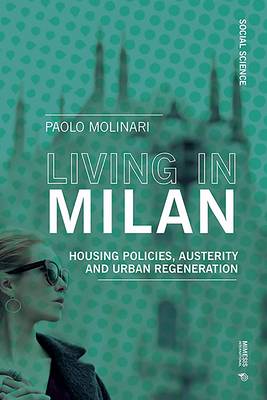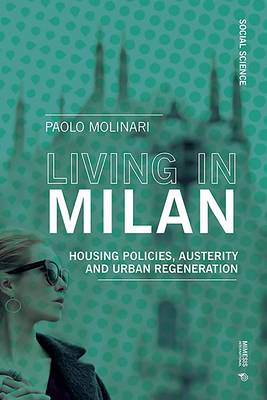
- Afhalen na 1 uur in een winkel met voorraad
- Gratis thuislevering in België vanaf € 30
- Ruim aanbod met 7 miljoen producten
- Afhalen na 1 uur in een winkel met voorraad
- Gratis thuislevering in België vanaf € 30
- Ruim aanbod met 7 miljoen producten
Zoeken
€ 15,45
+ 30 punten
Omschrijving
After a long absence from national political debate, the housing issue has forcefully returned following the protracted economic crisis of the past decade. In general, the significant impoverishment of housing policies in the wake of welfare restructuring decisions has deeply impacted the geography of social inequality. The present study analyses the housing issue in Milan in order to account both for the ways in which national austerity policies and the specific welfare model have influenced possible answers to such a crisis and for the specific local initiatives that have been or are being experimented (e.g. social housing, cohousing, urban regeneration). The inquiry confirms the hypothesis of the third sector's leading role in the management of new social risks in this southern European metropolis, along with all of the questions that such a role entails in terms of a possible emphasis on the local territorial imbalances that could stem from it.
Specificaties
Betrokkenen
- Auteur(s):
- Uitgeverij:
Inhoud
- Aantal bladzijden:
- 84
- Taal:
- Engels
- Reeks:
Eigenschappen
- Productcode (EAN):
- 9788869772597
- Verschijningsdatum:
- 17/06/2020
- Uitvoering:
- Paperback
- Formaat:
- Trade paperback (VS)
- Afmetingen:
- 107 mm x 163 mm
- Gewicht:
- 113 g

Alleen bij Standaard Boekhandel
+ 30 punten op je klantenkaart van Standaard Boekhandel
Beoordelingen
We publiceren alleen reviews die voldoen aan de voorwaarden voor reviews. Bekijk onze voorwaarden voor reviews.











